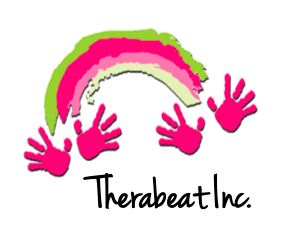Famous jazz vocalist Tony Bennett’s experience with Alzheimer’s disease while actively performing the lyrics and melodies of a multitude of songs is a glimpse into the impact of music on brain function throughout cognitive decline. Dementia and Alzheimer’s disease affect a large number of older adults every year globally. In 2022, approximately 6.5 million people 65 years and older in America will be diagnosed with Alzheimer’s dementia (Alzheimer’s Association, 2022). While memory impairment and cognitive decline are the primary symptoms, agitation, anxiety, depression, and paranoia are among some of the other symptoms that affect people with Alzheimer’s disease (Brotons & Pickett-Cooper, 1996). Music therapists can address various behavioral, emotional, and cognitive goals with these patients.
Many types of music therapy interventions have been found to be successful in treating different behaviors and symptoms present within this population. One important goal is improving cognition. Movement and instrument playing interventions were found to be effective in improving next-day cognition and were greatly preferred by clients over other types of music interventions (Bruer, et. al., 2007). When facilitated by a board-certified music therapist, these interventions are accessible and adaptable to all clients regardless of their prior musical training or lack thereof. The goal of improving cognition can be achieved through more specific Neurologic Music Therapy (NMT) techniques. NMT techniques are a subset of music therapy interventions requiring special training and qualifications, which are used primarily in rehabilitative goals and settings. Techniques such as Associative Music and Memory training and Musical Executive Function training engage the patients and assist them in reaching orientation and cognitive goals through music (Álvarez, 2022). These focused interventions utilize music improvisation, singing, discussion, and other methods to provide cognitive stimulation.
“Sundown Syndrome” is an even more specific phenomenon that can be addressed by music therapists working with geriatric populations. Sundown syndrome, or sundowning, is the colloquial term for a set of negative behaviors that arise for dementia patients in the late afternoon or evening. These behaviors can include “confusion, disorientation, anxiety, agitation, aggression, pacing, wandering, resistance to redirection, screaming, yelling and so forth” (Khachiyants, 2011, p. 275). Agitation reduction is an important emotional and behavioral goal addressed by music therapists. Interventions such as therapeutic singing, instrument playing, movement with music, musical games, and improvisation have all been found to be effective in reducing agitation (Brotons & Pickett-Cooper, 1996). One study noted comments from caregivers that claimed patients were “more cooperative and responsive” following music therapy sessions (Brotons & Pickett-Cooper, 1996, p. 14). This implies that strategically timed music therapy sessions facilitated by a board-certified music therapist can be beneficial to improving the patient’s symptoms while aiding the jobs of the caregivers of patients actively experiencing sundowning.
In addition to agitation and anxiety, music therapists can address depression symptoms in patients with Alzheimer’s disease and dementia. Reminiscence-based music therapy interventions use strategic familiar song choices and focused questions to facilitate discussion about certain topics. These types of interventions provide patients “a safe place to interact socially, to share their memories with other residents, and to improve self-image” (Ashida, 2000, p. 180). This positive social interaction and discussion leads to a decrease of depression symptoms among patients. Music therapists have the ability to positively impact many goal areas with patients with Alzheimer’s disease and dementia. The use of research-based interventions can improve the overall quality of life for patients in a rapidly growing geriatric population.
-Tess Vreeland, Music Therapy Intern
References
Álvarez, L. (2022). Neurologic music therapy with a habilitative approach for older adults with dementia: A feasibility study. Music Therapy Perspectives, 40(1), 76–83. https://doi.org/10.1093/mtp/miab021
Alzheimer's disease facts and figures. Alzheimer's Disease and Dementia. (2022). Retrieved October 17, 2022, from https://www.alz.org/alzheimers-dementia/facts-figures
Ashida, S. (2000). The effect of reminiscence music therapy sessions on changes in depressive symptoms in elderly persons with dementia. Journal of Music Therapy, 37(3), 170–182. https://doi.org/10.1093/jmt/37.3.170
Brotons, M., & Pickett-Cooper, P. K. (1996). The effects of music therapy intervention on agitation behaviors of alzheimer's disease patients. Journal of Music Therapy, 33(1), 2–18. https://doi.org/10.1093/jmt/33.1.2
Bruer, R. A., Spitznagel, E., & Cloninger, C. R. (2007). The temporal limits of cognitive change from music therapy in elderly persons with dementia or dementia-like cognitive impairment: A randomized controlled trial. Journal of Music Therapy, 44(4), 308–328. https://doi.org/10.1093/jmt/44.4.308
Khachiyants, N., Trinkle, D., Son, S. J., & Kim, K. Y. (2011). Sundown Syndrome in persons with dementia: An update. Psychiatry Investigation, 8(4), 275. https://doi.org/10.4306/pi.2011.8.4.275

